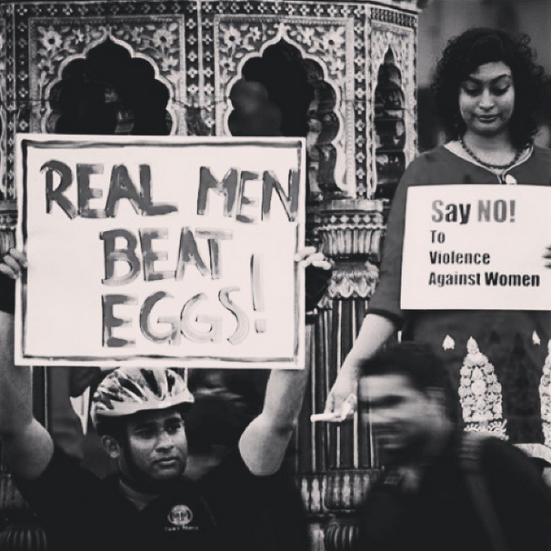This is a story I’ve been meaning to tell for a while now.
While the story itself is set in the recent past, there is a bit of a backstory that encapsulates the series of events that led to it.
September 2009 —home
It was a Thursday and my father had just returned home from work. That night at the dinner table he tells us about the new boy who started work at his office. ‘He is a smart chap, committed to work and very respectful. What more could one expect?’
His name is Sahan.
A few weeks later at an office reception we met Sahan. After talking with him for a few minutes, my mother, successfully traces most of his family tree and realizes that Sahan was, in fact the son of the sister one of her schoolmates. My mother instantly calls her friend (Sahan’s aunt) and hands Sahan the phone. She laughs in joy as her friend is surprised at the thought of her nephew meeting her old friend.
A few months pass. We meet Sahan’s a few times each month. Of course, for my parents Sahan, by then, has successfully become the embodiment of all things a young man should be.
A few weeks later—it’s a Sunday and we’re at a department store in Colombo buying groceries for the week ahead. There my parents met the Liyanage family.
Mr. and Mrs. Liyanage (and their kids) used to be our neighbours when lived in Dehiwala. Everyone is glad to have met each other albeit accidentally and for the next 20 minutes or so they catch up and talk about everything from politics to the cost of living and of course how the old neighbourhood has changed so drastically.
How come Chamithri is still single? My mother askes, as the eldest Liyanage daughter shyly blushes and looks down.
Mrs. Liyanage asks my mother to please let her know if she knew a ‘good boy from a good family’.
My mother instantly thinks of Sahan, but simply nods silently deciding to give it some thought. The next morning she calls Mrs. Liyanage and suggests Sahan as a prospective husband for Chamithri. Mrs. Liyanage, impressed by Sahan, who came highly recommended, asks my mother to please connect them with Chamithri’s family. For the next few days my mother plays cupid as the Liyanage’s and Samarasinghe’s (Sahan’s family) eventually meet.
The families and subsequently the couple consent to the marriage.
It was decided that Sahan and Chamithri would get married the following year!
5th February 2010—the Wedding Day
All invitees agree that Chamithri and Sahan look great together.
My mother is over the moon! She sheds a happy tear as the newlyweds leave the hotel in a red Ambassador car decorated with rose petals.
A few years pass by and the initial hype about the wedding dies down. Our lives intersect with Sahan’s and Chamithri’s a few times in the next few years at dinner parties, office trips and so on. They seem like the happiest couple and my mother rejoices with the greatest sense of accomplishment every time she is reminded that it was her who brought them together.
26th November 2014—home
A few days back I hear amma talk on the phone with someone and from her reactions to whatever is being said I understand that it is not good news. That evening at the dinner table amma tells thatha (and I) about the call. It had been Chamithri.
It turns out Sahan is a wife beater.
It had all begun about 6 months after the marriage when Chamithri has felt like Sahan is always messaging someone on his phone and questioned him about it. Since then, he has been hitting her, violently, several times a week, often despite her begging him not to.
But didn’t they live with Sahan’s parents? Thatha asked.
Sahan’s parents had known since day one. One day Chamithri had run downstairs to take refuge in the parents’ room but they have locked the room up and pretended not to hear anything. Another day when his father decided to go and stop his son from hitting Chamithri, Sahan’s mother has stopped him saying ‘ona deyak karaganna denna’ (let them do whatever)
This one time, the bruises hurt her so much that she decided to go see a doctor. Of course, she lied to the doctor that she slipped while crossing the road in the rain but she was quite sure he knew the bruises weren’t from a fall even though he didn’t question her any further.
Some days Chamithri didn’t go for work because she couldn’t bear the pain. Some days she didn’t go to work because the bruises were so visible that she’d be asked questions by her colleagues that she won’t be able to answer. She spent most nights sleepless, afraid of the man sleeping next to her
It didn’t take long for her workmates to understand what was going on. One day, Sujith the office clerk asked her ‘Sahan mahattayata hariyata tharaha yanawa wagey ney?’ (Mr. Sahan seems to have a quick temper)
Chamithri has never felt more humiliated. She pretended she wanted to go to washroom and stood up, but before she could take two steps tears started pouring from her eyes and she covered her face with her hands as she ran to the washroom.
Chamithri felt exposed and sometimes she felt like she deserved everything that was happening to her. This resulted in the most immutable sense of guilt.
The other person to be racked with guilt was my mother. If it wasn’t for her, Chamithri and Sahan would have remained strangers.
The moral of the story:
The reason why I wanted to tell this story is because often times when we speak of intimate partner violence, we wear our classist ‘holier than thou sunglasses’ and visualize a rural, poverty stricken context where the perpetrators are often uneducated, shirtless, intoxicated men beating their wives with one hand while holding one end of their sarong with the other and the survivors are stay at home mothers with no exposure to the safety mechanisms and the legal rights they’re entitled to. While this is sometimes the case, domestic violence also happens in the neighbourhoods that you and I live in, the perpetrators of intimate partner violence are sometimes highly educated white collar workers and the survivors may be women we encounter on a daily basis.
Domestic violence is used for only one purpose: to establish and maintain total dominance and control. Perpetrators use fear, guilt, shame, and intimidation to maintain his (or her) control. It occurs within all ages, ethnic and class backgrounds, and economic levels. While women are more commonly victimized, sometimes men are also abused.
The bottom line is that intimate partner violence is never acceptable whosoever the perpetrator may be.
No one, no one deserves to live their life in fear.
*names have been changed
Senel Wanniarachchi
Senel blogs at adahas.lk

